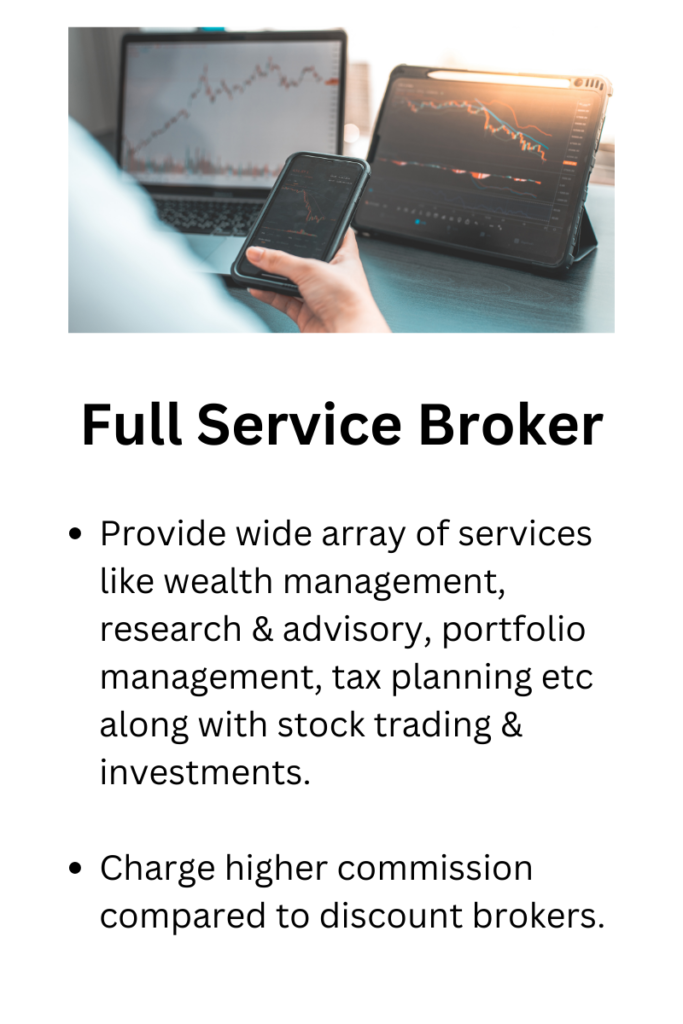A full service stock broker is a licensed broker firm that provides a wide array of services to its clients along-with stock trading and investments. The variety of services include research and advisory, portfolio management, wealth management, retirement planning, tax planning and more. Commissions at a full service broker are much higher than those at discount brokers.
Full service stock brokers are suitable for investors who don’t have time to stay up-to-date with market information. It is also a good option for new investors who would generally need guidance.
Features of full service stock broker
Typically full service brokers offer customized services to their clients. Clients are assigned to a relationship manager/financial advisor who then advice the client on managing portfolio, wealth management, new investment opportunities etc. These relationship managers/financial advisors are the main point of contact for the client at the full service brokerage firm. The relationship manager/financial advisor will analyze the investor’s profile and will assist in investment decisions based on the investor’s financial goals and risk appetite. They also provide market research reports to help the investor in decision making. It is a one stop destination for all investment and wealth management needs.
A full service broker also provides online access and trading platforms for its clients. These platforms generally use state-of-the-art technology and also come with research and technical analysis tools. In addition they also provide training for stock trading, stock recommendations and a dedicated manager for handling queries.
Full service brokers also have customized in-house range of products like mutual funds, loan services, insurance, portfolio restructuring, exchange traded funds, currency trading, commodity trading, equity baskets, options strategies, facility to invest in international markets etc. All full service broker firms have physical office locations for clients to visit.

Advantages & Disadvantages of Full Service Brokers
Advantages
A full service broker provides personal recommendations to its clients based on the client’s investment profile and risk taking capacity. Investors are more likely to make a better investment decision based on the advice and recommendation of a full service broker.
A full service broker does detailed market research and provides clients these reports. Based on the research, the clients can take a more informed decision. Many a times doing your own research and analysis is not practically possible for clients. A full service broker helps in this matter.
Disadvantages
The biggest disadvantage is the high brokerage charges which are charged by a full service broker. The brokerage is generally high due to the umbrella of services provided by a full service broker. If a person wants to only buy equity stock for the long term and is not actively trading, then it makes sense to go for a discount broker.
Another disadvantage of a full service broker is ‘over-selling of products’. Suppose you have a trading account with a full service broker. The broker also provides insurance services. Sometimes the broker might sell the other products for a commission and you may end up buying an insurance product which you may not need.
Brokers might engage in churning. Churning means buying and selling stock for the purpose of generating brokerage. It is not in the client’s/investor’s interest. There is also a risk of transparency.
Conclusion
A full service broker is suitable for investors who don’t want to do their own research, novice investors who are completely new to the market or high net worth individuals who have no time to manage their investments. Irrespective of the broker you choose, an investor should remain aware of the movements in their investment portfolio and should be in the know of trades executed by the broker on their behalf, if any.
Image credit: Image by master1305 on Freepik



